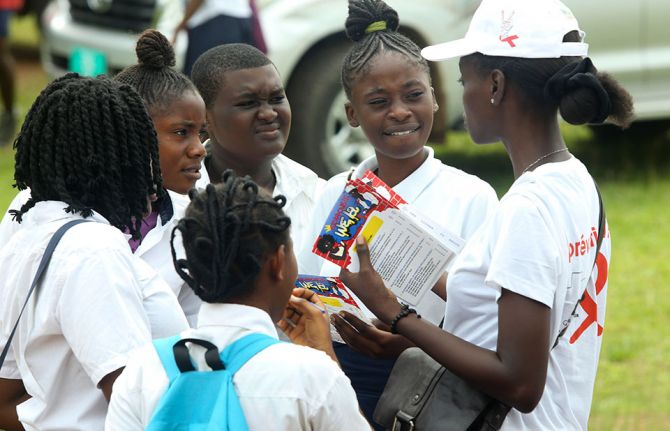

Update
Little progress in increasing comprehensive knowledge of HIV among young women in eastern and southern Africa
09 November 2020
09 November 2020 09 November 2020A critical component of HIV responses is ensuring that young people know both how to prevent HIV infections and where they can safely access HIV prevention and sexual and reproductive health services.
An analysis of population-based surveys conducted since 2000 suggests that comprehensive knowledge of HIV among young women and men in western and central Africa—and men in eastern and southern Africa—has steadily risen. However, comprehensive knowledge of HIV among young women in eastern and southern Africa has increased at a slower rate.
Recent surveys show that there is still significant work to be done. Among surveys conducted between 2011 and 2018, just 39% of young women (aged 15 to 24 years) in eastern and southern Africa—and 28% in western and central Africa—demonstrated comprehensive knowledge of HIV, compared to 46% and 31% of young men in the same age group, respectively. In 2001, countries committed in the Declaration of Commitment on HIV/AIDS to ensure that, by 2005, 90%, and, by 2010, 95% of young people aged 15–24 years have information, education, services and life skills that enable them to reduce their vulnerability to HIV infection.
Our work
Region/country
- West and Central Africa
- Benin
- Burkina Faso
- Burundi
- Cameroon
- Cape Verde
- Central African Republic
- Chad
- Congo
- Côte d'Ivoire
- Democratic Republic of the Congo
- Equatorial Guinea
- Gabon
- Gambia
- Ghana
- Guinea-Bissau
- Guinea
- Liberia
- Mali
- Mauritania
- Niger
- Nigeria
- Sao Tome and Principe
- Senegal
- Sierra Leone
- Togo
- Eastern and Southern Africa
- Angola
- Botswana
- Comoros
- Eritrea
- Ethiopia
- Kenya
- Lesotho
- Madagascar
- Malawi
- Mauritius
- Mozambique
- Namibia
- Rwanda
- Seychelles
- South Africa
- South Sudan
- Eswatini
- Uganda
- United Republic of Tanzania
- Zambia
- Zimbabwe



